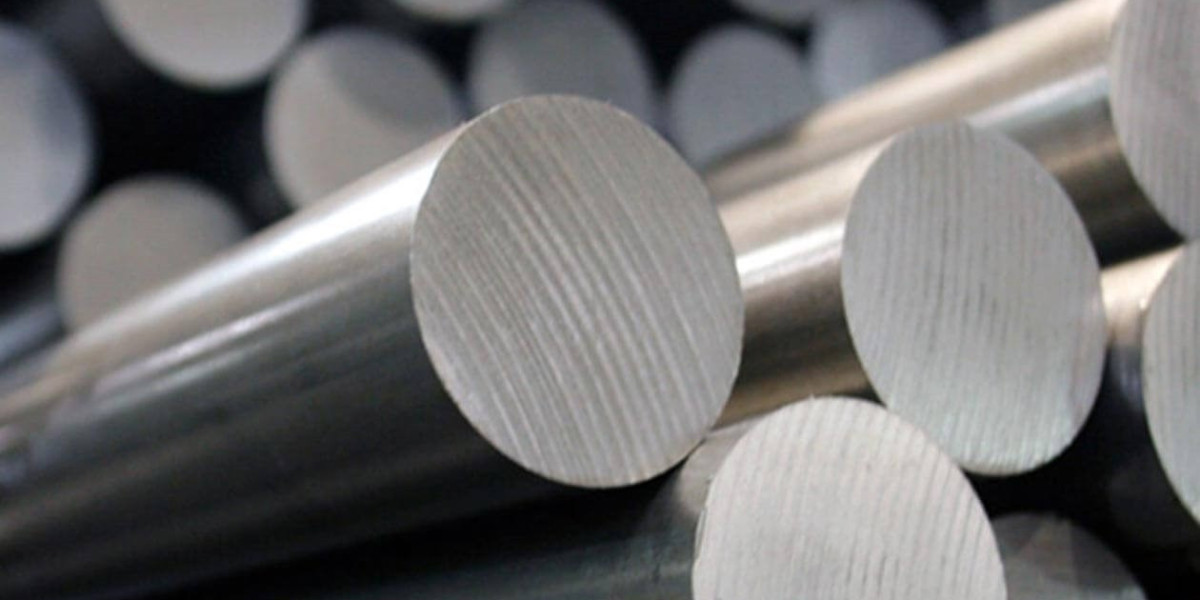When sourcing materials for critical applications, selecting the right alloy can mean the difference between success and costly downtime. Among high-performance alloys, Inconel 718 round bar stands out as a trusted material in aerospace, marine, oil & gas, and power generation industries. Known for its exceptional strength, weldability, and corrosion resistance, it remains one of the most widely used nickel-based superalloys worldwide.
In this blog, we’ll dive deep into what makes Inconel 718 round bar special, its advantages, industrial uses, and what buyers should consider before purchasing.
What is Inconel 718 Round Bar?
Inconel 718 is a nickel-chromium alloy that gains its strength through precipitation hardening. It contains nickel, chromium, niobium, molybdenum, titanium, and aluminum, giving it a unique combination of high strength, corrosion resistance, and thermal stability.
The round bar form of this alloy is particularly popular because of its versatility in machining and fabrication. It is supplied in hot rolled, forged, or cold drawn conditions to meet industry requirements.
Chemical Composition of Inconel 718 Bar
The balanced chemistry gives this alloy its outstanding characteristics:
Nickel (Ni): 50–55%
Chromium (Cr): 17–21%
Iron (Fe): Balance
Niobium (Nb) + Tantalum (Ta): 4.75–5.5%
Molybdenum (Mo): 2.8–3.3%
Titanium (Ti): 0.65–1.15%
Aluminum (Al): 0.2–0.8%
Carbon (C): Max 0.08%
Mechanical Properties
Density: 8.19 g/cm³
Melting Range: 1260–1336°C
Tensile Strength: Min 1240 MPa
Yield Strength: Min 1035 MPa
Elongation: 12% minimum
Hardness: 331 HB
These values make Inconel 718 bar reliable under pressure, heat, and corrosion.
Why Choose Inconel 718 Round Bar?
High-Temperature Strength – Maintains integrity up to 704°C.
Corrosion Resistance – Resists pitting, crevice corrosion, and oxidation.
Ease of Welding – Unlike many superalloys, Inconel 718 welds without cracking.
Durability – Long service life reduces replacement costs.
Stress Resistance – Performs well in creep and stress rupture conditions.
Common Applications of Inconel 718 Round Bar
Aerospace & Defense
Jet engines, turbine blades, compressor discs, rocket motors.
Oil & Gas Industry
Downhole equipment, valves, fasteners, and high-pressure tubing.
Marine Engineering
Offshore platforms, submarine components, and ship propeller shafts.
Power Generation
Gas turbines, nuclear reactors, and steam plant components.
Chemical Processing
Pumps, heat exchangers, storage tanks, and reactor vessels.
Automotive Performance
Turbochargers, exhaust systems, and motorsport components.
Standards and Specifications
When buying Inconel 718 round bar, always check compliance with international standards:
ASTM B637
AMS 5662 / 5663 / 5664
UNS N07718
DIN 2.4668
Bars are typically available in 3 mm to 300 mm diameter, supplied in forged, hot rolled, or annealed condition.
Processing and Heat Treatment
Solution Annealing – Enhances ductility.
Precipitation Hardening – Improves tensile strength and creep resistance.
Aging – Ensures dimensional stability at elevated temperatures.
Advantages Over Other Materials
Vs. Stainless Steel – Higher strength and better high-temperature stability.
Vs. Inconel 625 – More creep-resistant and stronger under thermal stress.
Vs. Titanium – Better oxidation and corrosion resistance at high temperatures.
Buyer’s Guide: How to Choose the Right Inconel 718 Round Bar
When investing in Inconel alloy 718 round bars, consider the following factors:
1. Verify Standards
Always ensure the bars meet ASTM, AMS, or DIN specifications. This guarantees performance and reliability.
2. Check Surface Finish
Choose from polished, black, or bright finishes depending on your application. Aerospace components often require precision-polished bars.
3. Confirm Dimensions
Standard diameters range from 3 mm to 300 mm, but custom sizes may be available based on project requirements.
4. Ask About Heat Treatment
Bars should undergo solution annealing and precipitation hardening for maximum strength.
5. Evaluate Supplier Credentials
Buy from an ISO-certified manufacturer or supplier with a proven track record in delivering high-quality superalloys.
6. Request Test Certificates
Look for mill test reports (MTR) to confirm chemical composition and mechanical properties.
Global Market Outlook
The demand for Inconel 718 bars is rising, especially in the aerospace and energy sectors. With new investments in renewable energy, space exploration, and deep-sea projects, this alloy will remain in demand for decades.
Handling and Machining Tips
Use carbide or ceramic tools for machining due to work-hardening properties.
Apply coolant to reduce heat buildup.
Store bars in clean, dry areas to avoid contamination.
Follow recommended welding practices to prevent cracking.
Final Thoughts
Inconel 718 round bar is more than just a strong alloy—it is a performance-driven material trusted in industries where reliability and safety are non-negotiable. Its combination of strength, weldability, and corrosion resistance makes it indispensable in critical engineering applications.
For buyers, it’s important to evaluate suppliers carefully, check certifications, and ensure compliance with international standards. Whether used in aerospace engines, marine shafts, or chemical plants, Inconel 718 continues to prove its value as one of the best-performing nickel-based alloys available today.













